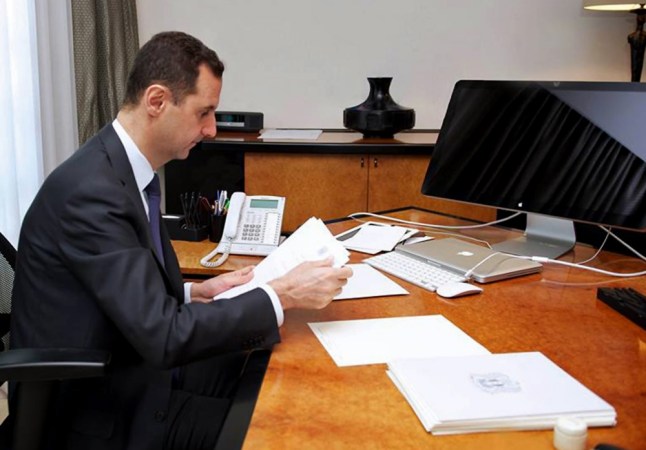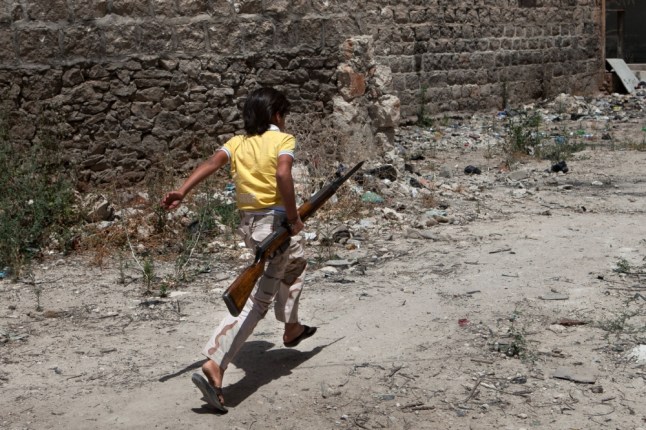
David Cameron has insisted ‘no decision’ has been taken by Britain with regards to arming the rebels in Syria’s bloody civil war.
The prime minister did say though that there was credible evidence of ‘multiple attacks’ using chemical weapons on the rebels by president Bashar al-Assad’s regime.
Mr Cameron described the Syrian president as a ‘brutal dictator who is using chemical weapons under our nose’.
The PM backed the ‘candid assessment’ by the White House and US president Barack Obama that chemical weapons had been used in the conflict, which the United Nations claims has now killed almost 100,000 people.
‘There is credible evidence of multiple attacks using chemical weapons in Syria, including the use of the abhorrent agent sarin,’ Mr Cameron said.
‘We believe that the scale of use is sanctioned and ordered by the Assad regime.

‘We haven’t seen any credible reporting of chemical weapons use by the Syrian opposition. However, we assess that elements affiliated to al-Qaeda in the region have attempted to acquire chemical weapons for probable use in Syria.’
The UK led calls for the European Union’s arms embargo on Syria to be lifted, and Mr Cameron said evidence of chemical weapons use by Assad justified that move.
The prime minister, speaking in the Downing Street gardens, added: ‘We have made no decision to arm the opposition, but it was right to lift the arms embargo.

‘The information about chemical weapons further shows the folly of having some embargo that gives some sort of almost moral equivalence to President Assad and to the legitimate opposition. We will continue to support, train and assist and work with the opposition.’
He later told the BBC that the conflict in Syria would be ‘up front and centre’ at the G8 summit of world leaders in Northern Ireland next week.
Mr Cameron added: ‘I think President Obama takes the same view that I take, which is that if we walk away completely and just say “This is all too difficult, it’s all to complicated” then we could end up with a situation where the only elements of the Syrian opposition that have any ability to protect people against the brutal onslaughts from this dictator are those of an extremist nature.
‘I don’t want that. I want to get the extremists out of Syria, I want to see less support for international terrorism.
‘I understand those who say disengage, it’s a very difficult situation. But my fear is that if we disengaged entirely the situation would actually get worse.
‘That’s why I think the work we do with the opposition, which does not involve supplying them with arms but does involve assistance, is important.’












